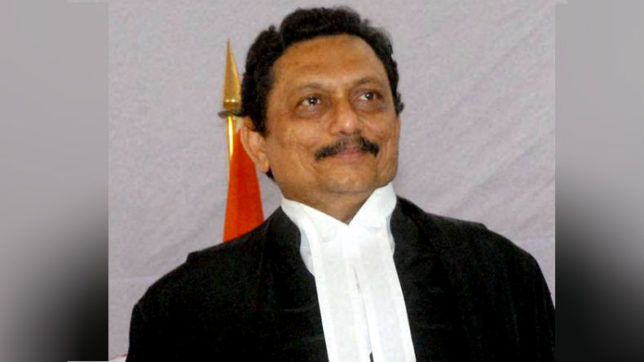New Delhi: Justice Sharad Arvind Bobde, who would take oath Monday as the 47th Chief Justice of India (CJI), has decided several key cases and was part of the recent historic verdict that cleared the way for the construction of a Ram Temple at the disputed site in Ayodhya.
Justice Bobde, 63, who would succeed CJI Ranjan Gogoi, would prefer a conservative approach on the issue of disclosing the Collegium’s entire deliberations on rejection of names for appointment in the higher judiciary.
The CJI-designate, in an interview to this agency, had said that people’s reputation cannot be sacrificed just to satisfy the desire of citizens to know.
On the issue of huge vacancies of judges in courts across the country and lack of judicial infrastructure, Justice Sharad Arvind Bobde wishes to take to the ‘logical end’ the steps taken by his predecessor CJI Gogoi.
Justice Gogoi had taken note of vacancies and lack of infrastructure in courts and has been monitoring them by issuing directions to all states and respective high courts to do the needful.
A nine-judge bench of the apex court headed by the then CJI JS Khehar and which included Justice Bobde held unanimously in August 2017 that the Right to Privacy was a constitutionally protected fundamental right in India.
Justice Bobde will have tenure of over 17 months as the CJI and is due to retire April 23, 2021.
Hailing from a family of lawyers from Maharashtra, CJI Bobde is the son of eminent senior advocate Arvind Shriniwas Bobde.
Justice Bobde has been chosen following the rule of seniority and his name was recommended by Justice Gogoi in a letter to the Centre.
His Warrant of Appointment was signed by President Ram Nath Kovind following which the Law Ministry issued a notification naming the judge as the next head of the Indian judiciary.
Justice Bobde also headed a three-member in-house committee which gave a clean chit to CJI Gogoi on a sexual harassment complaint against him by a former apex court staffer. The committee also included Justices Indira Banerjee and Indu Malhotra.
Justice Bobde was part of the three-judge bench which in 2015 clarified that no citizen of India without an Aadhaar card can be denied basic services and government services.
Recently, a two-judge bench headed by Justice Bobde directed the Committee of Administrators (CoA) headed by former Comptroller and Auditor General (CAG) Vinod Rai, appointed by it for the purpose of running the BCCI administration, to demit office paving the way for elected members to run the affairs of the cricket board.
Born on April 24, 1956 in Nagpur, Maharashtra, Justice Bobde completed Bachelor of Arts and LLB degrees from Nagpur University. He was enrolled as an advocate of the Bar Council of Maharashtra in 1978.
Justice Bobde practiced law at the Nagpur Bench of the Bombay High Court with appearances at Bombay before the Principal Seat and before the Supreme Court for over 21 years. He was designated as senior advocate in 1998.
Justice Bobde was elevated to the Bombay High Court, March 29, 2000, as Additional Judge and sworn in as Chief Justice of Madhya Pradesh High Court on October 16, 2012. He was elevated as a judge of the Supreme Court, April 12, 2013.
PTI
